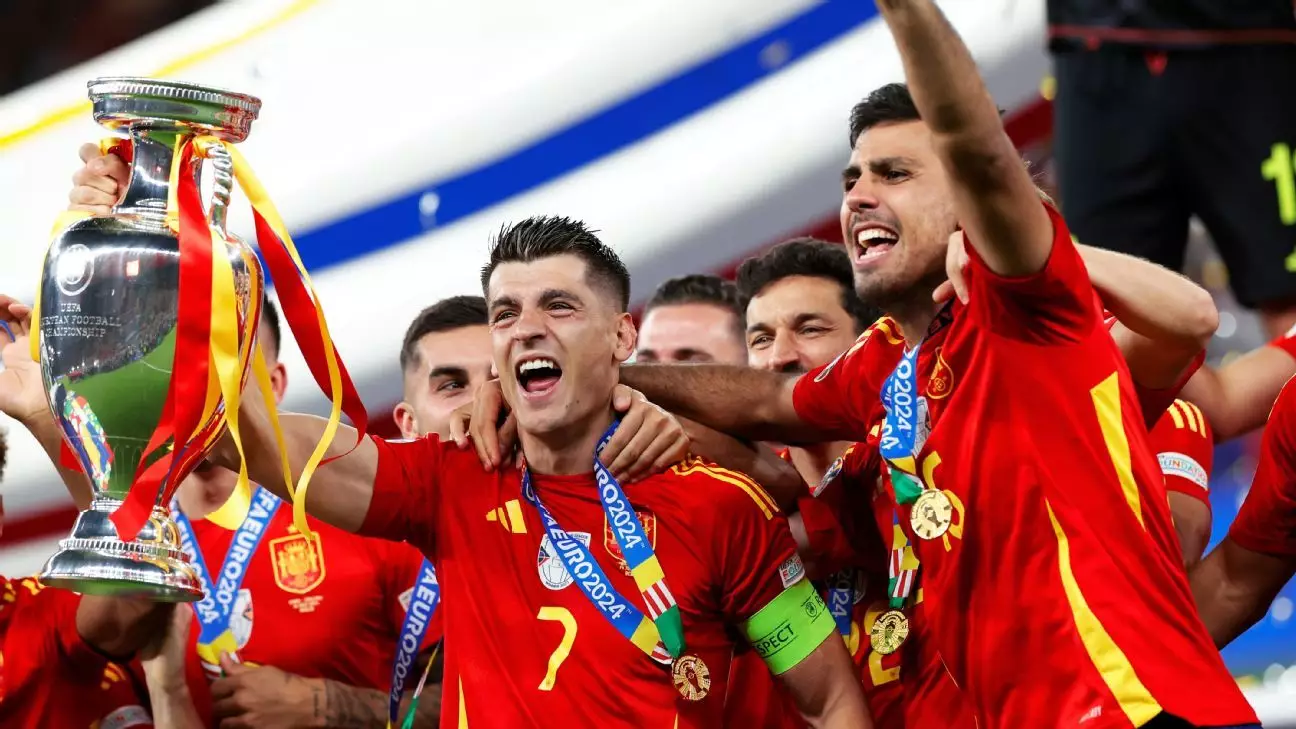Luis de la Fuente, the head coach of the Spanish national football team, has recently voiced significant concerns stemming from a leadership vacuum at the Spanish Football Federation (RFEF). With the FIFA Congress set to convene on December 11 to award hosting rights for the 2030 World Cup, unconfirmed reports suggest that Spain’s chances are jeopardized by the RFEF’s inability to elect a new president. This scenario poses a potential threat not only to Spain’s image as a football nation but also raises questions about the economic ramifications tied to hosting such a prestigious event.
The backdrop to this unsettling situation lies in the recent suspension of the RFEF’s former president, Pedro Rocha, following a serious infraction, leaving the federation in a precarious state with no clear leadership for over four months. FIFA retains a stringent policy that prohibits governmental interference in football federation operations, a stance that complicates the urgency with which a new president must be appointed. De la Fuente’s remarks reflect a sense of urgency; acknowledging the gravity of losing the World Cup, he emphasized that any complacency regarding this risk is emblematic of ignorance.
The World Cup is not merely a sports event; it is an economic powerhouse that promises significant financial benefits to the host nation. For Spain, hosting the tournament translates into myriad opportunities, from tourism boosts to international exposure, as well as enhancing national pride. The threat of relinquishing this opportunity is alarmingly real, and De la Fuente’s comments underscore the precarious position the country finds itself in at this juncture. Should FIFA follow through with punitive measures based on the RFEF’s leadership crisis, the financial loss could be devastating for local economies and businesses reliant on the influx of visitors and revenue streams tied to the tournament.
Moreover, the discourse surrounding this situation emphasizes the interconnectedness of sports and national identity. For many Spaniards, the chance to host the World Cup is not purely about the sport itself; it represents Spain’s prominence on the global stage. The loss of hosting could lead to a broader questioning of the nation’s ability to manage organizational challenges and politics in sports, diminishing public confidence and support.
One of the primary concerns presented by De la Fuente is the pressing necessity for the RFEF to reestablish normalcy promptly. He underlined the importance of a stable leadership to navigate the complexities surrounding not just the hosting arrangements, but also the current operations of the national team. With Spain gearing up for critical Nations League matches, the squad faces additional challenges; the injury to key player Rodri is a significant blow. De la Fuente expressed optimism regarding Rodri’s recovery, showcasing the indomitable spirit that bonds the team, yet the reality remains that navigating these setbacks is vital for Spain’s ambitions on the pitch.
The future of Spain’s role as a host for the 2030 World Cup hangs in limbo, interwoven with the critical need for a decisive organizational turn by the RFEF. The ramifications extend beyond football, threatening economic implications and impacting national pride. As the clock ticks closer to the FIFA Congress, the urgency for a solution becomes increasingly clear. The hope remains that Spain can swiftly overcome this leadership challenge, restore confidence, and seize the opportunity to shine on the world stage at the upcoming World Cup.

